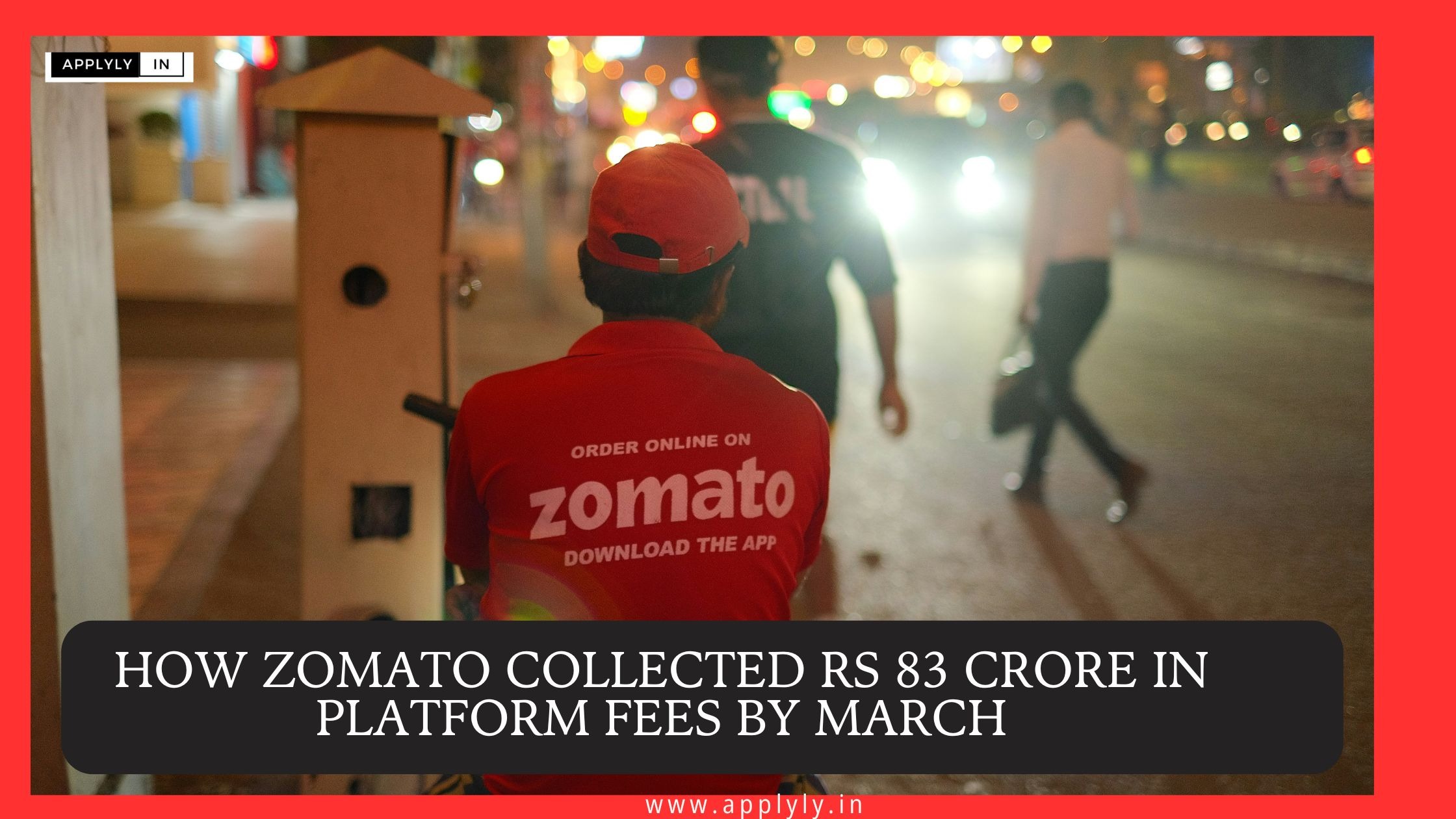How Zomato Collected Platform Fee?
How Zomato Collected Rs 83 Crore In Platform Fees By March
Introduction
The food delivery industry in India has grown rapidly. Zomato, one of the leading platforms, has played a big role in this growth. In the past year, Zomato introduced a platform fee on orders. This move helped Zomato collect Rs 83 crore in platform fees by March 2024. In this blog, we will explore how Zomato collected Rs 83 Crore in Platform Fees by March, 2024. Let’s discuss its impact on the company’s revenue, and what it means for the future of food delivery in India.
The Introduction of Platform Fees
In August 2023, Zomato started charging a small platform fee on each order. Initially, this fee was set at Rs 2 per order. The fee has gradually increased to Rs 6 per order in key markets. The introduction of this fee was part of Zomato’s strategy to boost revenue. By March 2024, Zomato had collected Rs 83 crore in platform fees. This new levy played a significant role in driving the company’s adjusted revenue.
Impact on Adjusted Revenue
Zomato’s annual report revealed that the platform fee was one of the three key factors driving its adjusted revenue. In the fiscal year 2024, Zomato’s adjusted revenue grew by 27% year-on-year, reaching Rs 7,792 crore. The report stated that the adjusted revenue as a percentage of Gross Order Value (GOV) continued to increase. This was primarily due to an increase in restaurant commission take-rates, improvement in ad monetization, and the introduction of the platform fee from the second quarter of FY24 onwards.
Compensation for Reduced Delivery Charges
The platform fee more than compensated for the reduction in customer delivery charges per order. This reduction was due to the free delivery benefit available on Gold orders. Despite offering free delivery on Gold orders, Zomato managed to increase its adjusted revenue. The introduction of the platform fee played a crucial role in this achievement. By March 2024, Zomato collected Rs 83 crore in platform fees, showcasing the effectiveness of this strategy.
Regional Insights and Trends
Zomato’s annual report also provided interesting insights into regional trends. Most late-night orders in the last fiscal year came from Delhi NCR. On the other hand, most breakfast orders came from Bengaluru. These regional preferences highlight the diverse eating habits across different parts of India. Zomato has successfully catered to these preferences, further solidifying its position in the market.
Growth in Restaurant Commission Take-Rates
Another factor contributing to Zomato’s revenue growth was the increase in restaurant commission take-rates. By charging higher commissions from restaurants, Zomato managed to boost its revenue. This strategy, combined with the platform fee, significantly impacted the company’s financial performance. Zomato collected Rs 83 crore in platform fees by March, underscoring the success of these combined strategies.
Improvement in Ad Monetization
Improvement in ad monetization also played a key role in driving Zomato’s adjusted revenue. By optimizing its ad platform, Zomato attracted more advertisers, leading to higher ad revenue. This improvement, along with the introduction of the platform fee, helped Zomato achieve a 27% year-on-year growth in adjusted revenue. The collection of Rs 83 crore in platform fees by March was a testament to the effectiveness of these strategies.
Customer Response to Platform Fees
Customers’ response to the platform fee has been mixed. While some customers did not mind the small additional charge, others were more critical. However, the fee did not significantly impact the number of orders placed on the platform. Many customers continued to use Zomato for its convenience and variety of options. Zomato’s ability to maintain customer loyalty despite the introduction of the platform fee is noteworthy.
Future Prospects
The introduction of the platform fee and its success in generating revenue highlight Zomato’s ability to adapt and innovate. As the food delivery market continues to grow, Zomato is well-positioned to leverage new opportunities. The company may explore further adjustments to its fee structure or introduce new services to enhance its offerings. By March 2024, Zomato collected Rs 83 crore in platform fees, showcasing its potential for future growth.
Conclusion
Zomato’s decision to introduce a platform fee has proven to be a successful strategy. By March 2024, the company collected Rs 83 crore in platform fees. This move, along with other strategies like increased restaurant commission take-rates and improved ad monetization, contributed to a significant increase in Zomato’s adjusted revenue. As Zomato continues to innovate and adapt to market trends, it is poised for continued success in the competitive food delivery industry.
In conclusion, this is how Zomato collected Rs 83 crore in platform fees by March through strategic planning and adaptation. The company’s ability to grow its revenue despite challenges is a testament to its strong market presence and innovative approach. As Zomato continues to evolve, it remains a key player in the Indian food delivery market.
You can read more information related to Startup advise, AI and startup news here.
Thanks
References
1. Zomato Annual Report FY24
2. Economic Times – Zomato’s Platform Fee Revenue
3. Financial Express – Analysis of Zomato’s Revenue Growth
4. Business Standard – Impact of Platform Fees on Zomato’s Financial Performance
5. Times of India – Zomato’s Market Strategies and Customer Trends
You can now also read more stories here.
Thanks
Regards






